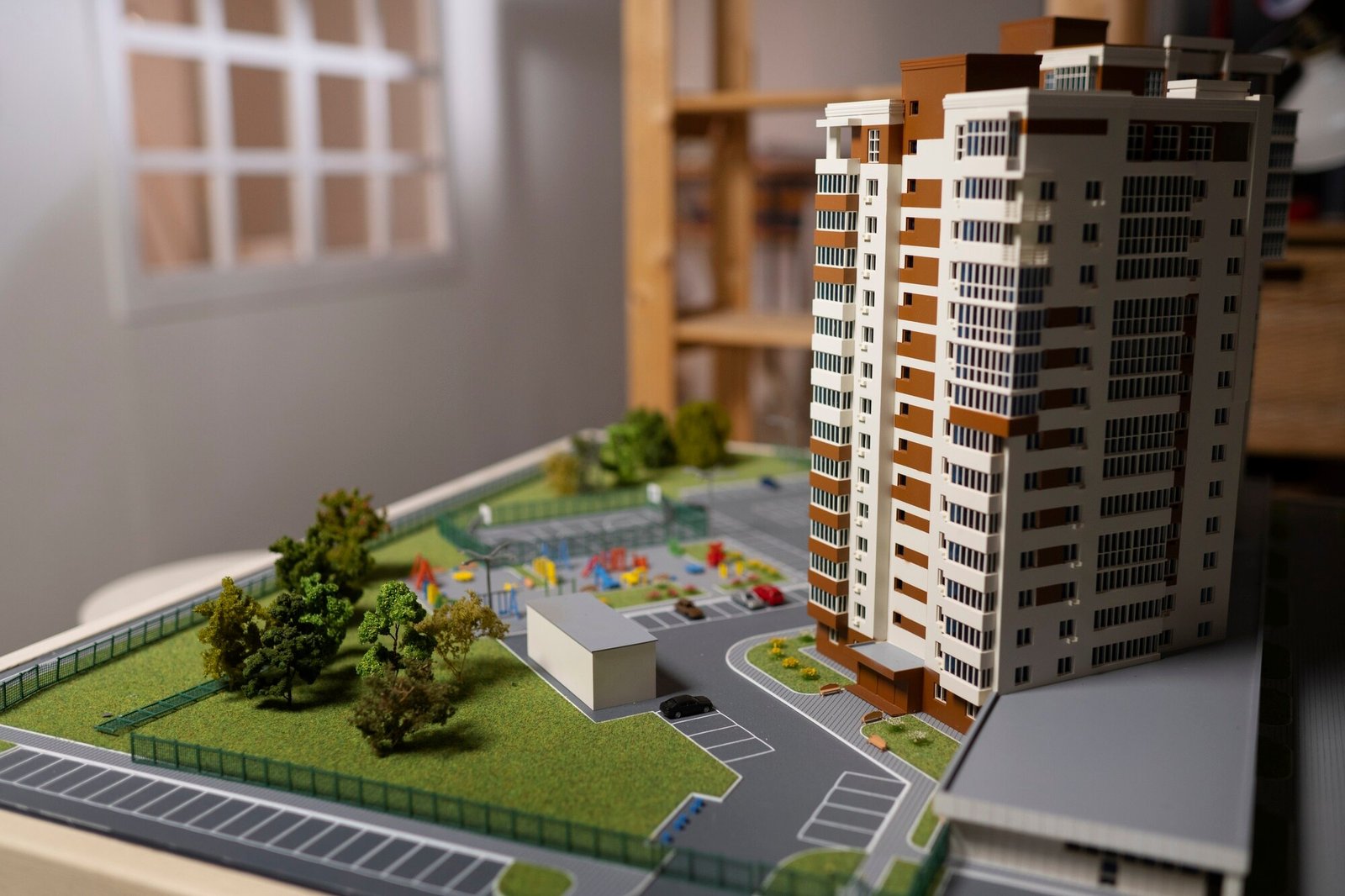
Commercial vs. Residential Construction: Key Differences Builders Need to Know
Whether you’re a developer considering your first commercial project or a property owner evaluating construction partners, understanding the fundamental differences between commercial and residential construction is essential for making informed decisions. At MightyHunter Construction, we excel in both sectors and have compiled this comprehensive comparison to highlight the most significant distinctions.

Scale and Complexity
Commercial Construction: Commercial projects typically involve larger structures with more complex systems and specialized requirements. A commercial building often encompasses:
- Multiple stories with complex structural requirements
- Advanced mechanical, electrical, and plumbing systems
- Specialized areas like commercial kitchens, server rooms, or manufacturing spaces
- Fire suppression systems and emergency backup power
- ADA compliance throughout all public areas
Residential Construction: While custom homes can be complex, residential projects generally feature:
- Simpler structural systems
- Standardized mechanical and electrical requirements
- More emphasis on aesthetics and comfort features
- Less extensive fire protection systems
- More limited accessibility requirements
At MightyHunter, our teams are structured to address these differing complexity levels, with specialized divisions for commercial and residential work.
Regulatory Requirements and Permitting
Commercial Construction: Commercial projects face more rigorous regulatory oversight, including:
- More extensive plan review processes
- Multiple departmental approvals (fire, health, environmental)
- Regular inspections from multiple authorities
- Compliance with commercial building codes and zoning
- Environmental impact studies for larger projects
- Traffic studies and infrastructure assessments
Residential Construction: While still regulated, residential projects typically involve:
- Streamlined permitting processes
- Primary focus on residential code compliance
- Fewer specialized inspections
- Simplified zoning considerations
- Neighborhood-focused impact assessments
Our permitting specialists maintain relationships with local authorities in both sectors, helping navigate these varying requirements efficiently.
Materials and Construction Methods
Commercial Construction: Commercial buildings frequently utilize:
- Steel and concrete structural systems
- Commercial-grade HVAC and electrical systems
- Industrial waterproofing and roofing systems
- Fire-rated assemblies throughout
- Specialized flooring for high traffic
- Curtain wall or large-span glazing systems
Residential Construction: Residential structures commonly feature:
- Wood frame construction
- Residential-grade mechanical systems
- Architectural shingles or residential metal roofing
- Fire protection primarily between units in multi-family
- Design-focused finishes prioritizing aesthetics
MightyHunter’s material procurement teams leverage relationships with suppliers in both markets to ensure cost-effectiveness without sacrificing quality.
Project Timeline and Scheduling
Commercial Construction: Commercial project schedules are characterized by:
- Longer overall durations (often 12+ months)
- Formalized scheduling systems (CPM scheduling)
- Multiple concurrent work phases
- Coordination of numerous specialized subcontractors
- Extended procurement timelines for specialized equipment
- Weather considerations for specific construction phases
Residential Construction: Residential projects typically feature:
- Shorter durations (3-12 months for custom homes)
- More sequential work progression
- Less formal scheduling systems
- Fewer specialized subcontractors
- Greater schedule flexibility
- More sensitivity to seasonal timing for market reasons
Our project management systems are calibrated to the appropriate level of complexity for each sector, ensuring efficient execution regardless of project type.
Budget Considerations and Financing
Commercial Construction: Commercial project financing typically involves:
- Institutional lenders with commercial construction expertise
- Draw schedules tied to completion milestones
- Larger contingency allocations (often 5-10%)
- Complex payment applications and approval processes
- Retention requirements (typically 5-10% held until completion)
- Performance bonding requirements
Residential Construction: Residential financing usually features:
- Specialized residential construction loans
- Simplified draw schedules
- Smaller contingencies (typically 3-5%)
- More straightforward payment processes
- Varied retention practices
- Less frequent bonding requirements
MightyHunter’s financial management team is experienced in both commercial and residential funding mechanisms, helping clients navigate the appropriate process for their project type.
Equipment and Technology Requirements
Commercial Construction: Commercial projects often require:
- Heavy equipment (tower cranes, large excavators)
- Specialized installation equipment
- Extensive temporary power and facilities
- Advanced project management software
- BIM coordination for complex systems
- Detailed documentation systems
Residential Construction: Residential construction typically involves:
- Smaller, more mobile equipment
- Less extensive temporary facilities
- Simplified project management tools
- Less formal documentation requirements
- More emphasis on finish quality control
MightyHunter invests in appropriate technology for each sector, ensuring efficient operations without unnecessary overhead costs.
Making the Right Choice for Your Project
Understanding these differences is crucial when selecting a construction partner. Some contractors specialize exclusively in one sector, while others like MightyHunter maintain specialized divisions for both commercial and residential work.
When evaluating potential builders, ask about their specific experience with your project type and their systems for managing the unique challenges it presents.
At MightyHunter Construction, our team includes experts from both commercial and residential backgrounds. This diversity of experience allows us to apply the best practices from each sector across all our projects—whether we’re building a complex commercial facility or a custom luxury home.
Contact us today to discuss your specific project needs and discover how our expertise in both commercial and residential construction can benefit your next building endeavor.



